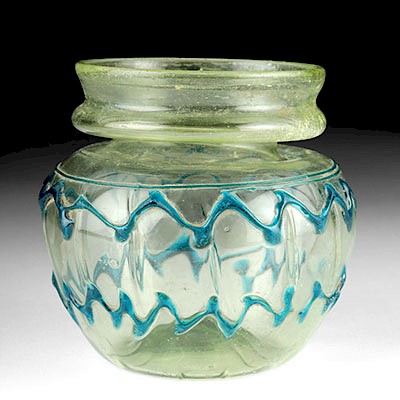Early 20th C. Ifugao Wood Guardian Figure - 45" Tall
Lot 93
About Seller
Artemis Gallery
686 S Taylor Ave, Ste 106
Louisville, CO 80027
United States
Selling antiquities, ancient and ethnographic art online since 1993, Artemis Gallery specializes in Classical Antiquities (Egyptian, Greek, Roman, Near Eastern), Asian, Pre-Columbian, African / Tribal / Oceanographic art. Our extensive inventory includes pottery, stone, metal, wood, glass and textil...Read more
Estimate:
$2,600 - $3,900
Absentee vs Live bid
Two ways to bid:
- Leave a max absentee bid and the platform will bid on your behalf up to your maximum bid during the live auction.
- Bid live during the auction and your bids will be submitted real-time to the auctioneer.
Bid Increments
| Price | Bid Increment |
|---|---|
| $0 | $25 |
| $300 | $50 |
| $1,000 | $100 |
| $2,000 | $250 |
| $5,000 | $500 |
| $10,000 | $1,000 |
| $20,000 | $2,500 |
| $50,000 | $5,000 |
| $100,000 | $10,000 |
| $200,000 | $20,000 |
About Auction
By Artemis Gallery
Aug 16, 2018
Set Reminder
2018-08-16 10:00:00
2018-08-16 10:00:00
America/New_York
Bidsquare
Bidsquare : Clearance Sale - Ancient / Ethnographic Art
https://www.bidsquare.com/auctions/artemis-gallery/clearance-sale---ancient-ethnographic-art-3368
These lots are going, going, gone... plus a nice selection of lots brand-new to auction! Artemis Gallery info@artemisgallery.com
These lots are going, going, gone... plus a nice selection of lots brand-new to auction! Artemis Gallery info@artemisgallery.com
- Lot Description
**Originally Listed At $1500**
Southeast Asia, the Philippines, Luzon, Ifugao, ca. early to mid 20th century CE. A well-preserved example of a bulul, a hand-carved wooden figure made to protect the rice crop. He has a simple form: a standing anthropomorphic figure with an oval face, broad shoulders, and a slim body. It stands atop a flat base that has an extending, rectangular spike below it. Its hands are crossed over his chest. The hands and feet are relatively small compared to the face and its features, which include wide eyes, a triangular nose, and a small, straight mouth. This figure represents the foremost tradition of anthropomorphic sculpture from the indigenous people of the Philippines. Size: 4.25" W x 45.15" H (10.8 cm x 114.7 cm); 46.75" H (118.7 cm) on included custom stand.
Art in Ifugao is not just decorative, but also crucial to the well being of the community. Men carve sculptures like this one, and women weave colorful textiles. Bulal, carved from a single piece of wood and representing the human body in a stylized form, are often in male and female pairs, but some, like this one and the example linked to below from the Art Gallery of New South Wales, are androgynous. Bulul are ritually consecrated with pig or chicken blood, and then placed into rice fields and granaries, where they function as guardians.
See a similar example at the Art Gallery of New South Wales: https://www.artgallery.nsw.gov.au/collection/works/219.2005/?tab=about and another at the Metropolitan Museum of Art: https://www.metmuseum.org/art/collection/search/626371
Provenance: private Hawaii, USA collection; ex Westermann collection, Germany
All items legal to buy/sell under U.S. Statute covering cultural patrimony Code 2600, CHAPTER 14, and are guaranteed to be as described or your money back.
A Certificate of Authenticity will accompany all winning bids.
We ship worldwide and handle all shipping in-house for your convenience.
#131996Expected weathering on wood surface, with some shallow surface cracks. Loss to tip of nose, but otherwise very well preserved.Condition
- Shipping Info
-
All shipping is handled in-house for your convenience. Your invoice from Artemis Gallery will include shipping calculation instructions. If in doubt, please inquire BEFORE bidding for estimated shipping costs for individual items.
-
- Buyer's Premium



 EUR
EUR CAD
CAD AUD
AUD GBP
GBP MXN
MXN HKD
HKD CNY
CNY MYR
MYR SEK
SEK SGD
SGD CHF
CHF THB
THB















